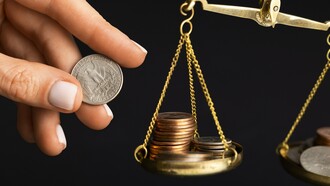The 35% of Morocco energy comes from renewable sources thanks to energy sites such as Noor-Ouarzazate solar power plant. Morocco is on the right track to reach its goal of increasing the share of renewable energies in its energy mix to 42% on the horizon of 2020.
Morocco has set itself one of the world's most ambitious energy targets, to increase the share of renewable sources to 42% of its energy mix by 2020. Morocco hosts the largest solar park in the world; built on an area of more than 3,000 hectares, the Noor-Ouarzazate complex produces enough electricity to power a city of the size of Prague, or twice as much as Marrakech. Located at the gateway of the Sahara Desert, the complex produces 580 megawatts, saving the planet from over 760,000 tons of carbon emissions.
Shares of Renewable Energy in National Electricity Mix Reached 35%
The share of renewable energy in the national electricity mix reached 35% by the end of 2018, with an installed capacity of more than 2,965 MW. The Ministry is working to develop an additional capacity of about 10,000 MW of renewable energy, divided into 4,500 MW solar, 4,200 MW wind, and 1,300 MW hydroelectric by 2030, according to a declaration, at the end of January, made by the Minister of Energy, Mining and Sustainable Development, Aziz Rabbah.
In order to achieve the objectives set within the deadlines, the Ministry, in coordination with all partners and actors of the energy sector, has activated programs and reforms as part of the energy strategy. Morocco is committed to an energy transition that translates into a very satisfactory electricity reserve margin and a reduction in energy dependence from 98% in 2008 to around 93% currently, mainly due to the rise in renewable energy.
In this regard, the Minister stressed the importance of activating the energy strategy to meet the constraints of growing demand, noting that reducing the external energy dependence rate is mainly based on the development of renewable energy, energy efficiency and the promotion of regional integration. He also highlighted the continuous evolution of energy demand over the last decade, with an annual rate of about 4.1%, emphasizing the high energy dependence (93.3% in 2017), with a bill reaching 69 billion dirhams in 2017.
Regarding energy efficiency, the main energy consumers are transports (38%), followed by constructions (33%) and the industrial sector (21%). The draft National Energy Efficiency Strategy, prepared and presented to the Government Council in June 2017, proposes programs that will achieve an energy saving of around 20% by 2030, targeting the most energy consuming sectors.
MASEN, AfDB Join Forces to Implement 'Desert to Power' Africa Initiative
Chairman of the executive Board of the Solar Energy Moroccan Agency (MASEN), Mustapha Bakkoury, and president of the African Bank of Development (AfDB) Group, Akinwumi Adesina, signed, at the end of last year in Johannesburg, a Letter of Intent endorsing a new cooperation under the "Desert to Power" program. The objective of this partnership, signed within the framework of the African Investment Forum, which will be held at the Sandton Convention Center in Johannesburg, is to support African countries, particularly those in the Sahel region targeted by "Desert to Power", in terms of developing renewable energy technologies best suited to their natural conditions and specific energy needs.
The aim is to combine MASEN's expertise in the development of renewable energy projects with the AfDB's operational experience in this sector, particularly in terms of sharing know-how, capacity building and experience, technical assistance, development of renewable energy projects and mobilization of the necessary resources.
Sharing the experience developed by MASEN and setting in motion a process of competitive development of renewable energy on the African continent is to aim to make renewable energy a real lever for inclusive growth. This partnership with the AfDB "is a definite asset to achieve this ambition. "The AfDB Group president stressed that Morocco remains "an example" in the field of renewable energy. Adesina said he is "impressed" by the Noor Ouarzazate solar power plant, which "was made by Moroccan capabilities". This station, in which the Bank has invested heavily, is "proof that Africa can achieve great things at the international scope.”
Morocco will invest over 40 Billion Dollars in Energy Sector by 2030
Morocco will invest more than 40 billion dollars in the energy sector by 2030 according to official statistics. Investments in the energy sector will reach 30 billion dollars for renewable energy electricity generation projects, which represents great opportunities for the national, regional and international private sector. In order to implement these energy programs and projects, the Kingdom attaches great importance to the issue of encouraging investment in the energy sector in general and in the renewable energy sector in particular.
Morocco is making great efforts in energy field through the adoption of several measures and the development of its legal arsenal with a view to improving the climate and framework conducive to encouraging domestic and foreign private investors. The energy sector in Morocco is characterized by the increased demand for energy and almost total dependence on imports. The Kingdom's overall consumption of primary energy amounts to 20.8 million tons in 2017, including oil (55.9%) and coal (25.5%). Renewable energies (wind, hydroelectric, solar) contribute 5.8%, whereas they represented only 2.6% in 2002, which has reduced the Kingdom's energy dependence from 98% in 2008 to 93% in 2017 and reflects the country's commitment to the energy transition process.















